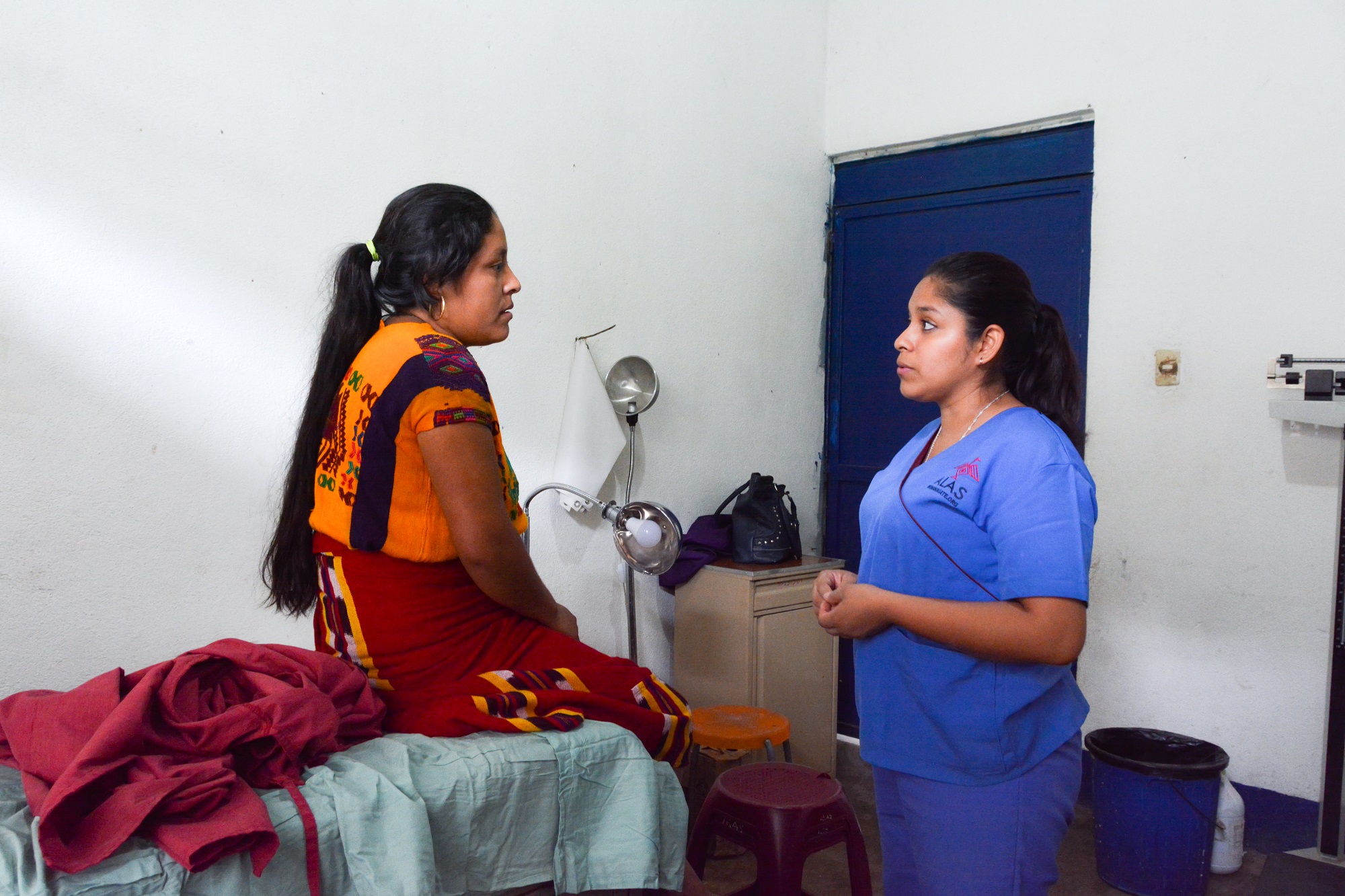
Mission
The Women’s International Network for Guatemalan Solutions (WINGS), provides quality reproductive health education and services to underserved, primarily rural, Guatemalan youth, women, and men.
Life Challenges of the Women Served
Guatemala currently has an estimated population of 17 million people. It is projected that by 2030, the population will reach a staggering 21.3 million people. With the highest fertility rate in the region, 3.1 children per woman, Guatemala faces a crisis. The large, extremely young population – 56 percent below age 25 – is placing unprecedented pressure on natural resources and pushing more individuals into poverty which, in turn, pushes individuals and families towards extreme choices, like migration. Poverty disproportionately affects the indigenous and rural population more than the urban. An estimated 80 percent of Guatemala’s indigenous population lives in poverty.
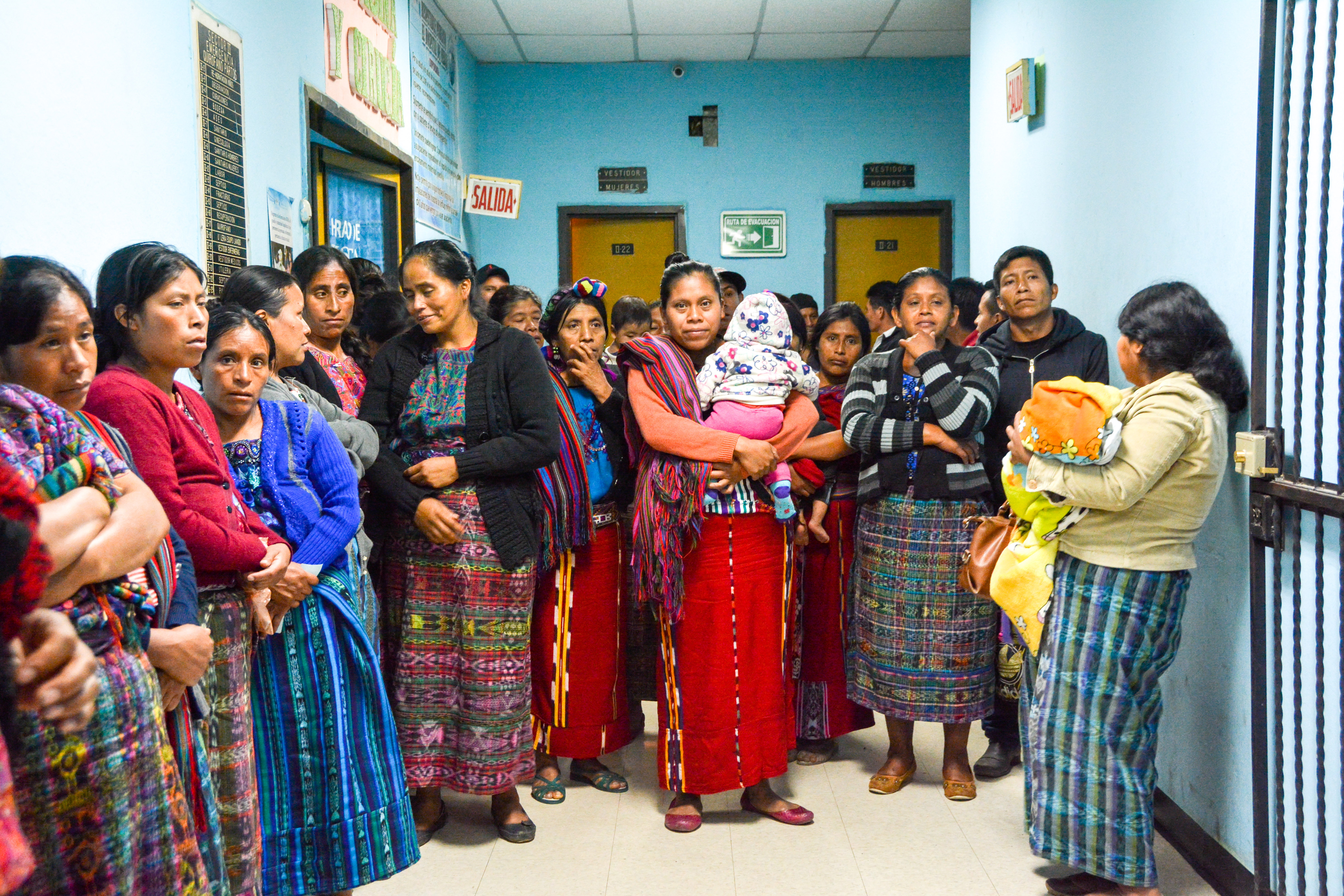 The ramifications of poverty inordinately impact girls and women, who are more likely to be denied food and education when household resources are limited. This, in turn, perpetuates gender inequality as women lack the education and resources necessary for economic independence. Youth, and particularly girls, in rural Guatemala face incredible dangers. Girls must navigate a reality where they are at risk of becoming child brides, suffering sexual violence, and being kept out of school to work or raise children.
The ramifications of poverty inordinately impact girls and women, who are more likely to be denied food and education when household resources are limited. This, in turn, perpetuates gender inequality as women lack the education and resources necessary for economic independence. Youth, and particularly girls, in rural Guatemala face incredible dangers. Girls must navigate a reality where they are at risk of becoming child brides, suffering sexual violence, and being kept out of school to work or raise children.
Adolescent pregnancy in Guatemala is one of the highest in Central America. In 2018, 4,629 Guatemalan girls ages 10 – 14 were pregnant, an 8 percent increase from 2017, while 112,144 girls ages 15 – 19 were pregnant, nearly a 27 percent increase from 2017.
There is a significant difference between contraceptive use among indigenous women (50.1 percent) and non-indigenous women (67.8 percent). Women and girls feel the need to hide the fact that they use contraception from their parents, husbands, and most commonly, mothers-in-law.
The Project
This grant will support the expansion of WINGS reproductive health services to three hard-to-reach departments in Guatemala – Huehuetenago, Quetzaltenago, and San Marcos – directly impacting 1,150 individuals annually.
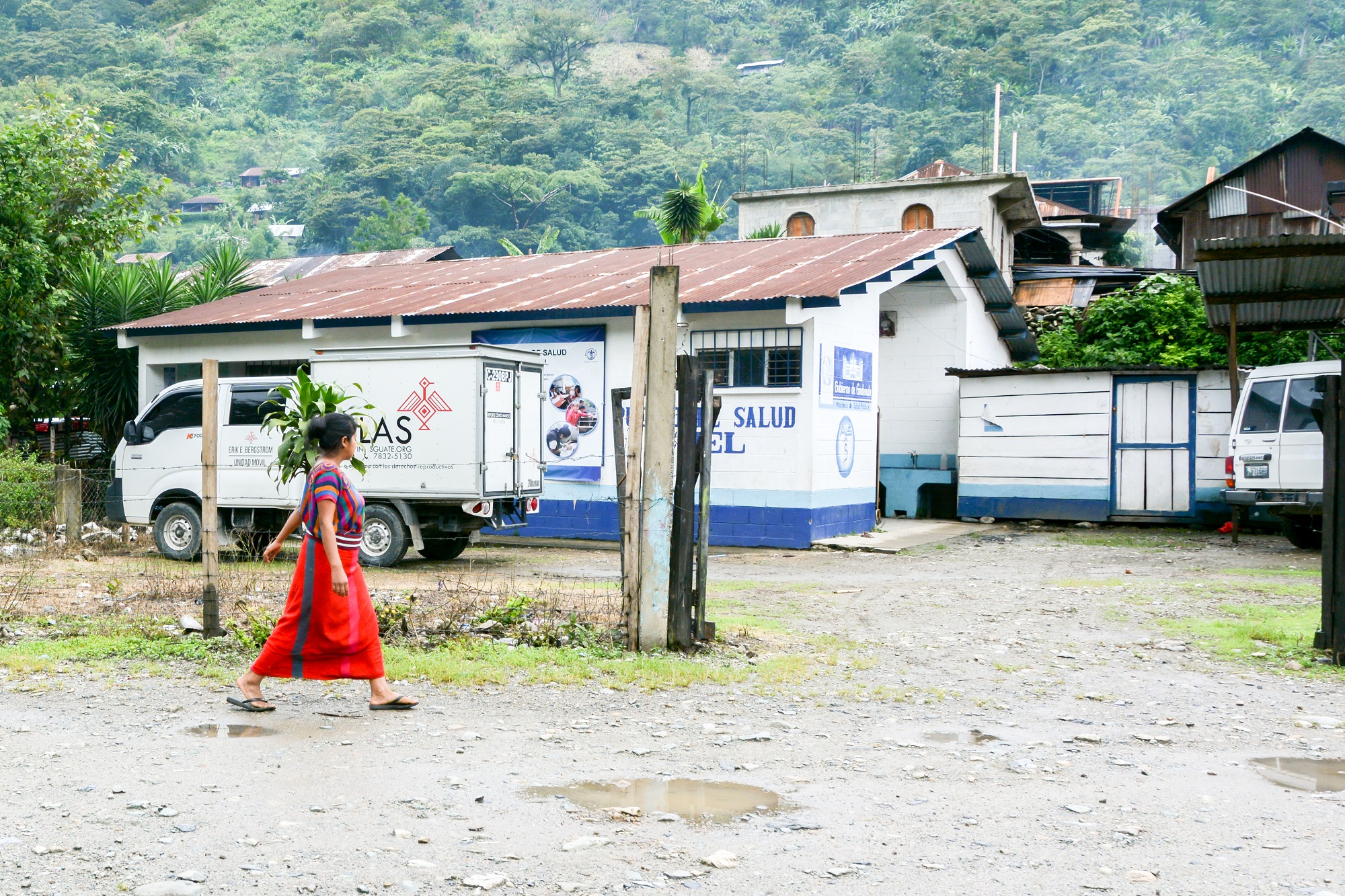 WINGS works not only to fill in the gaps left by national resources, but also to take services directly to patients at the community level. Access to quality, affordable reproductive health services is ensured through a network of volunteer health promoters, mobile medical units, and stationary clinics, providing educational talks, private counseling, short and long-acting reversible contraception, cervical cancer screening with Visual Inspection with Acetic Acid/cryotherapy, and permanent sterilization procedures. WINGS is expanding mobile unit services into the Western Highlands of Guatemala into the vulnerable and hard-to-reach departments of Huehuetenango, Quetzaltenango, and San Marcos. WINGS’ third mobile unit team, to be headquartered in Quetzaltenango, will offer reproductive health education, cervical cancer screening, surgical contraception, and LARCs in pop-up clinics throughout these three departments.
WINGS works not only to fill in the gaps left by national resources, but also to take services directly to patients at the community level. Access to quality, affordable reproductive health services is ensured through a network of volunteer health promoters, mobile medical units, and stationary clinics, providing educational talks, private counseling, short and long-acting reversible contraception, cervical cancer screening with Visual Inspection with Acetic Acid/cryotherapy, and permanent sterilization procedures. WINGS is expanding mobile unit services into the Western Highlands of Guatemala into the vulnerable and hard-to-reach departments of Huehuetenango, Quetzaltenango, and San Marcos. WINGS’ third mobile unit team, to be headquartered in Quetzaltenango, will offer reproductive health education, cervical cancer screening, surgical contraception, and LARCs in pop-up clinics throughout these three departments.
WINGS collaborates with local partners to implement the following activities:
- Youth Peer Education Program: Young women and men (ages 13 – 19) trained as Youth Leaders provide accurate reproductive health information and service referrals to their peers through community-based activities. WINGS’ evidence-based training curriculum uses an educational strategy that addresses gender and power in intimate relationships, with a focus on pregnancy prevention for adolescents.
- Volunteer Promoter Network: One of WINGS’ longest-standing programs is a network of more than 30 Volunteer Health Promoters – community leaders identified within underserved rural areas to be a local point of service. Through their intimate linguistic and cultural knowledge of the communities they serve, they can provide quality contraceptive counseling, low-cost short-acting methods, and referrals to WINGS medical clinics for additional services.
- Reproductive Health Clinics: WINGS’ three mobile units, which reach rural communities, and their stationary clinic in Antigua provide long-acting reversible contraception, short-acting contraceptives, and rapid cervical cancer screening/treatment.
- Mobile Surgical Clinics: Affordable, quality tubal ligations and vasectomies are performed by WINGS’ Medical Director and contracted physicians at partner hospitals throughout the country. Pre- and post-procedure care, as well as follow-up in the days after, is provided by WINGS’ nurses.
Throughout the provision of services, WINGS links each step to the next: Youth Leaders refer peers to Volunteer Health Promoters (for short-acting methods) or to WINGS’ Youth-Friendly Space (for long-acting methods). Promoters refer their patients to mobile units or the stationary clinic for long-acting or definitive methods. Finally, patients seen in mobile units or the stationary clinic get referred to their community’s Promoter, when available, to answer questions that might arise. By linking all these women, and some men, to each other, the aim is to build a population that is more knowledgeable about their own bodies and the rights they possess.
The basis of WINGS’ clinical services is rights-based, patient-centered care. They provide interventions that always consider each patient’s individual needs and values while allowing the patient to lead the decision-making process. This counseling style can be particularly meaningful when a woman has not experienced a sense of voice in her life before. If she is accustomed to a male making decisions for her, this approach can be both frightening and exhilarating for her. WINGS’ educators, nurses, and doctors are all trained in effective communication strategies to encourage women to feel at ease making decisions and feeling comfortable with those decisions.
Year One – Direct Impact: 1,130, Indirect Impact: 1,745
Year Two – Direct Impact: 1,130, Indirect Impact: 1,745
UN Sustainable Development Goals
![]()
![]()
![]()
![]()
![]()
![]()
![]()
![]()
Questions for Discussion
- How do you think this project can affect poverty?
- How do you think the project’s other benefits, aside from contraceptive care, make an impact?
- How does WINGS’ work impact gender equality?
How the Grant Will be Used
DFW’s grant of $50,000 for two years will be used for the following:
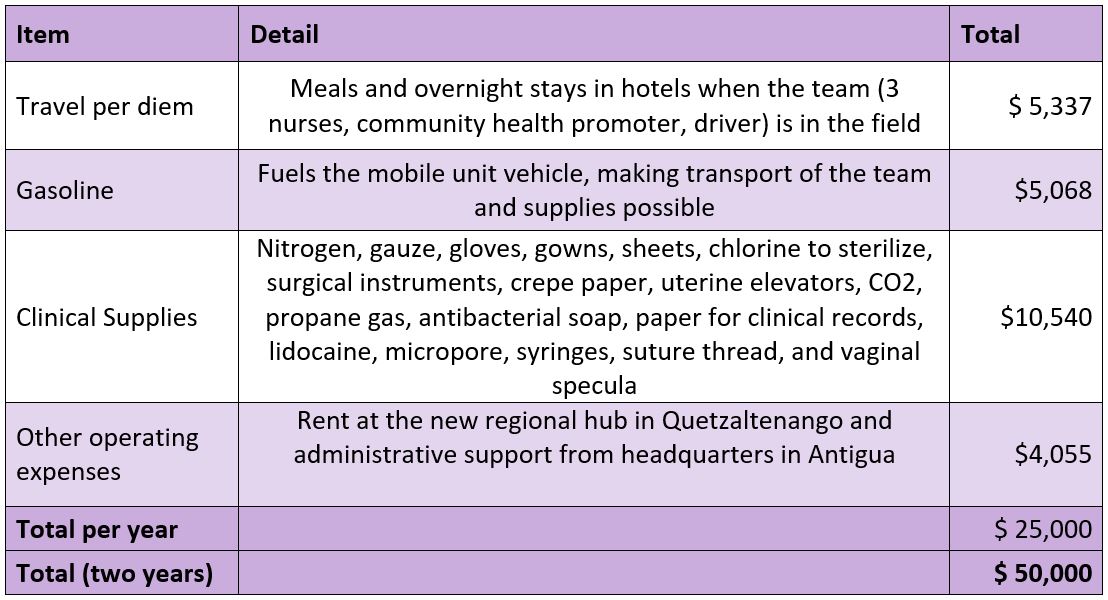
Why We Love This Project/Organization
We love WINGS’ outreach to marginalized, isolated communities in Guatemala to offer education, training, and services for sexual and reproductive health.
Evidence of Success
Since 2001, WINGS has provided 291,045 women, men, and youth with education and contraceptive counseling. They estimate their impact to be 265,556 unintended pregnancies prevented and 97 maternal and 1,510 child deaths prevented (estimated using the Marie Stopes International Impact 2 model).
In addition to directly affecting the lives of thousands of patients each year, WINGS’ services have a domino effect on families and the communities where they live. Children raised by mothers who use a contraceptive method will likely have greater access to knowledge about their own bodies, their future reproductive health, and gender equality.
WINGS’ reputation as a leader in the provision of rights-based, patient-centered care in Guatemala is growing. Both patients and institutional partners seek them out to request services. One of the other benefits seen is a shift in accepted ideas about reproductive health in Guatemala. While WINGS is not the only entity working towards this paradigm shift, they are proud to be part of conversations that show Guatemalans are becoming more willing to talk about the issue of sexual and reproductive health.
Voices of the Girls
“It was obvious from the moment we entered the WINGS pop-up clinic area that your staff was not part of the regular hospital staff. You treated my sister with unexpected respect and worked to make sure that she received all the information she needed. I will recommend WINGS services.”
– Sofia, sister of WINGS tubal ligation patient
“When I was 18 years old, I got pregnant. I don’t regret having my son at all, but now I think what would have happened if I had used contraception – I think about that a lot. I would love to study law and travel, but I can’t. I only earn minimum wage. I have to pay my rent and I have no time for those things. Nobody told me about contraception before my son. In my school, we had three sex-ed classes and it was just about condoms and little else. Contraceptive methods are seen by some as something that improves your quality of life, but there are still so many people who think that contraception is against life or that it is just a way to promote promiscuity.”
–Geidi, contraceptive patient, age 23
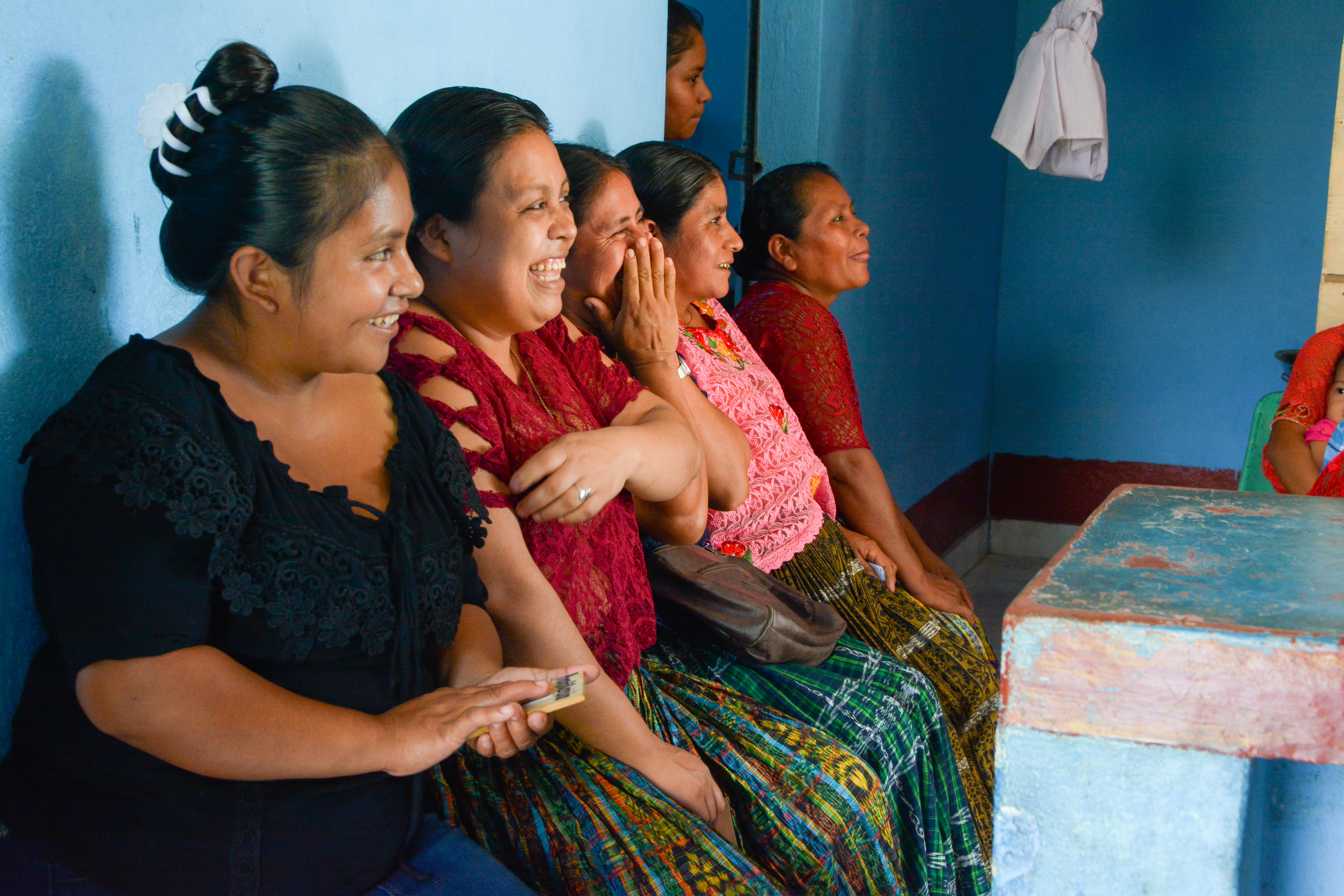
“For me, family planning is the key to the transformation of Guatemala. When all Guatemalans know about contraception, there will be more rights and opportunities to have an equal education for all children. It is essential that access to education be the same for everyone. With many children, it is difficult for them to receive education and that has a huge impact in other areas, such as the economy.”
–Duván, WINGS Youth Leader, age 20
“In a sexist society such as Guatemala, contraception is considered to be for women. We think that since women are the ones who naturally bring life to the world, it is their responsibility to take care of themselves. In addition, there are myths about vasectomy that say men are unable to be sexually functional after it. I made the decision to have surgery because I don’t want my wife having an invasive surgery. She has been using contraceptive methods for two years; it was my time to take responsibility.”
–José, vasectomy patient, age 37
“The training that WINGS has invested in me and the team of nurses that I supervise gets put to use every day as we provide clinical services in rural Guatemala. I have even learned leadership skills that I never would have imagined in my work as a nurse. I feel so grateful – I’ve never worked anywhere I felt so valued.”
–Tatiana Pedro, WINGS nurse
“I’m a single mother who gets no support from my family or from the father of my baby. This whole experience has been so difficult that I decided I simply don’t want another child. But no national service would agree to provide me a tubal ligation until I found WINGS. After lots of counseling, I fully understood that my choice is permanent and I’m grateful that WINGS finally let me get the surgery.”
–Rosa, tubal ligation patient, age 18
About the Organization
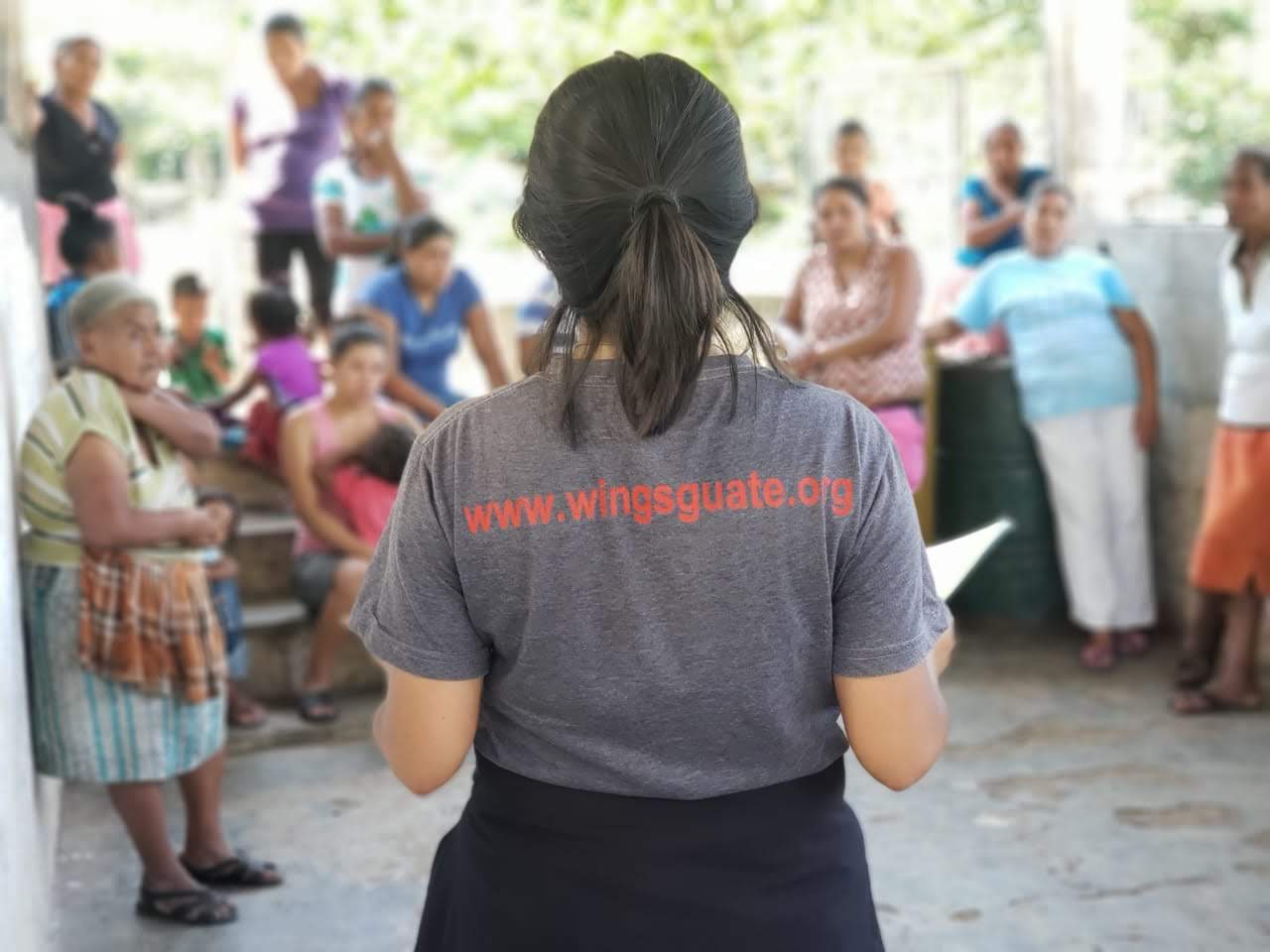 WINGS was established by Sue Patterson, a retired United States Foreign Service Officer based in Guatemala, who in 1999 began mobilizing resources for seven Guatemalan women interested in but unable to afford voluntary tubal ligations. Inspired by the commitment of these women in determining their reproductive health and recognizing the immense need for accessible services, Sue founded WINGS. Since then, WINGS has promoted leadership among women and youth, culturally appropriate services, and sustainable change through education and access to contraceptive methods. They are now seen as a leader in Central America in providing patient-centered, rights-based reproductive health services and education. Their activities are divided into clinical services, which they offer via stationary and mobile clinics as well as a network of Volunteer Promoters, and educational services, including their Youth Peer Education Program. Through their own clinic and partner sites, WINGS’ offers surgical procedures (tubal ligations and vasectomies), Long-Acting Reversible Contraception (LARCs: IUDs and subdermal hormonal implants), and short-acting contraception (injections, pills, and condoms).
WINGS was established by Sue Patterson, a retired United States Foreign Service Officer based in Guatemala, who in 1999 began mobilizing resources for seven Guatemalan women interested in but unable to afford voluntary tubal ligations. Inspired by the commitment of these women in determining their reproductive health and recognizing the immense need for accessible services, Sue founded WINGS. Since then, WINGS has promoted leadership among women and youth, culturally appropriate services, and sustainable change through education and access to contraceptive methods. They are now seen as a leader in Central America in providing patient-centered, rights-based reproductive health services and education. Their activities are divided into clinical services, which they offer via stationary and mobile clinics as well as a network of Volunteer Promoters, and educational services, including their Youth Peer Education Program. Through their own clinic and partner sites, WINGS’ offers surgical procedures (tubal ligations and vasectomies), Long-Acting Reversible Contraception (LARCs: IUDs and subdermal hormonal implants), and short-acting contraception (injections, pills, and condoms).
Where They Work
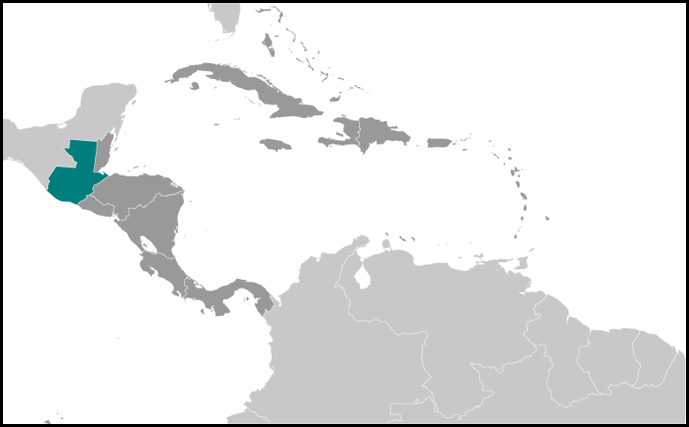
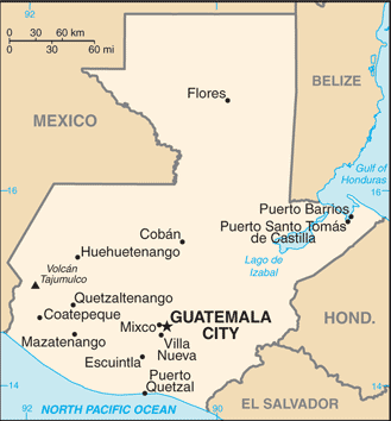
Guatemala is located in Central America, bordering the North Pacific Ocean, between El Salvador and Mexico, and bordering the Gulf of Honduras (Caribbean Sea) between Honduras and Belize, in an area slightly smaller than the state of Pennsylvania. Most of the population resides in the southern half of the country, particularly in the mountainous regions; more than half of the population lives in rural areas. It is one of the poorest countries in Latin America and the Caribbean, having highly unequal incomes and chronically malnourished children, beset by political insecurity, and lacking skilled workers and infrastructure.
Guatemala struggles in several areas of health and development, including infant, child, and maternal mortality, malnutrition, literacy, and contraceptive awareness and use. The country’s large indigenous population is disproportionately affected. It is the most populous country in Central America and has the highest fertility rate in Latin America. It also has the highest population growth rate in Latin America, which is likely to continue because of its large reproductive-age population and high birth rate. Almost half of Guatemala’s population is under age 19, making it the youngest population in Latin America.
The median age in Guatemala is 22.5 years (2018 est.). The birth rate is 24.6 births/1,000 population (2018 est.). The maternal mortality rate is 95 deaths/100,000 live births (2017 est.), and the infant mortality rate is 23.3 deaths/1,000 live births (2018 est.). The literacy rate for males is 87.4 percent and 76.3 percent for females (2015 est.).
A Closer Look at Unmet Contraceptive Needs
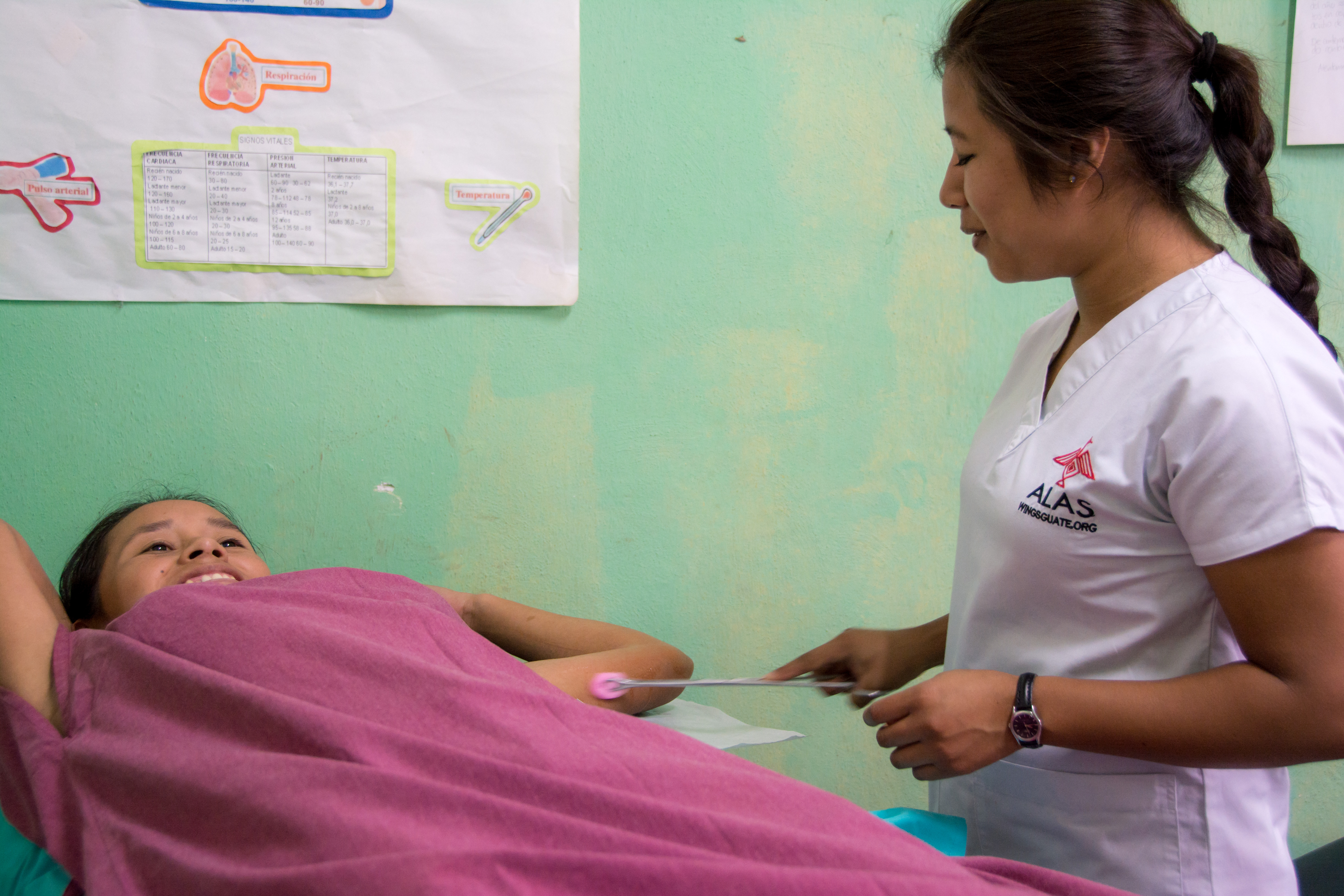 Among the 1.9 billion women of reproductive age (15 – 49 years) living in the world in 2019, 1.1 billion had a need for family planning. These women were either current contraceptive users – 842 million used modern methods of contraception and 80 million used traditional methods – or had an unmet need for family planning. The proportion of women who have their need for family planning satisfied by modern methods was 76 percent in 2019. There were 190 million women who wanted to avoid pregnancy and did not use any contraceptive method.
Among the 1.9 billion women of reproductive age (15 – 49 years) living in the world in 2019, 1.1 billion had a need for family planning. These women were either current contraceptive users – 842 million used modern methods of contraception and 80 million used traditional methods – or had an unmet need for family planning. The proportion of women who have their need for family planning satisfied by modern methods was 76 percent in 2019. There were 190 million women who wanted to avoid pregnancy and did not use any contraceptive method.
For instance, in Latin America and the Caribbean, nearly four-fifths of pregnancies among adolescents ages 15 – 19 are unintended, and about half of these end in abortions – of which more than three-quarters are unsafe. Each year in this region, 7,000 women die from complications of birth, abortion, or miscarriage, and 100,000 babies die in the first month of life. Most of these deaths could have been prevented with adequate medical care. Fewer than half of women and newborns in Latin America who need care for complications of pregnancy and delivery receive it. If all unmet need for modern contraception in Latin America and the Caribbean were satisfied, there would be a decline of about two-thirds in the annual number of pregnancies, unsafe abortions, and unplanned births.
Consequences of unmet contraceptive needs can result in complications of pregnancy, ill health, and death. Adolescent childbearing is associated with lower educational attainment among mothers and can perpetuate a cycle of poverty from one generation to the next. Improving a girl’s or woman’s sexual and reproductive health, including preventing unintended pregnancy, is essential to their social and economic well-being. The consequence of wanted but unmet contraceptive needs are high.
Source Materials
